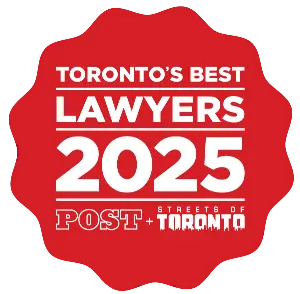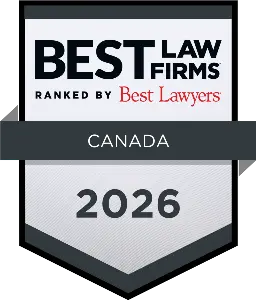Were you or a loved one harmed due to medical negligence?
You may be entitled to compensation.
or call 1 (866) 308-7722. Our experts are here to guide you every step of the way.
Medical Malpractice Lawyers
We trust medical practitioners with what is most precious to us: our health, our lives, and the health and lives of our loved ones. When a medical provider breaches the standard of care and causes injury or death due to medical negligence, that trust is broken.
If you believe you have been injured by medical negligence, our medical malpractice lawyers can help. Our experienced, knowledgeable, and caring medical malpractice lawyers have a solid record of assisting patients injured by medical negligence as they seek compensation for the losses they have suffered.
We handle cases involving:
- Birth trauma
- Brain injury
- Spinal cord injury
- Or other adverse medical outcomes that leads to pain and suffering, significant disability and/or financial loss.
With medical malpractice lawyers in Toronto, Ottawa, Niagara, Barrie, Collingwood and Midland, Gluckstein Lawyers are available to help you with your medical malpractice claim.
How can medical malpractice lawyers help you?
Medical malpractice lawyers who put your recovery first.
After experiencing a life-altering injury from medical malpractice, you or your loved one may be feeling scared, angry, depressed, and overwhelmed. Our medical malpractice law firm has years of experience. We're known for our full-circle, client-centred care. Our lawyers will treat you and your loved ones with respect, kindness, and empathetic understanding you deserve.
As you begin your journey of healing, trust our team of medical malpractice lawyers to join you. We can help you get the compensation and damages you are owed for your pain, suffering and losses. Nothing can ever replace all that a personal injury takes from you; but receiving an award for damages can change your life for the better. When we can negotiate a settlement or win a court-ordered award for you, it can help bring closure to one tumultuous chapter of your life and give you what you need to ensure there are brighter times ahead.
Our legal experts approach medical malpractice claims with precision and care, ensuring every detail of your case is meticulously evaluated. When calculating damages for medical malpractice claims, we consider:
- Current and future medical expenses
- Lost income
- Pain and suffering
- Loss of enjoyment of life
- Long-term care costs
We carefully assess all these factors to ensure your claim covers all your losses. We evaluate damages and build a strong case for you. Our legal representation is tailored to your unique situation. We are committed to fighting for you and achieving results that truly matter.
How we prove the breached standard of care.
Medical professionals dedicate their lives to caring for others, but even skilled doctors, nurses, and technicians can make preventable mistakes. While the healthcare system doesn’t demand perfection, it does require providers to meet accepted standards of care.
Proving a medical malpractice claim involves two critical elements:
- A breach of the medical standard of care (the provider failed to meet professional expectations)
- Direct harm caused by that breach (the mistake led to your injury or worsened condition)
Though this may sound straightforward, these cases are often complex. Medical institutions have powerful legal teams, and the burden of proof rests on you, the patient who’s already suffered. That’s where experienced medical malpractice lawyers make all the difference.
Proving causation in medical malpractice cases.
Medical malpractice cases are often complex, with proving causation being one of the most challenging aspects. Causation connects a healthcare provider's error to the harm suffered by the patient. Without clear evidence linking the two, even the strongest cases can falter. At Gluckstein Lawyers, we understand how important causation is in medical malpractice claims. We excel at building strong cases that meet this high standard of proof.
The importance of proving medical malpractice causation.
To succeed in a medical malpractice case, you must demonstrate not only that a medical error occurred but also that this error directly caused your injuries. This is no small feat. The medical field is full of variables, and adverse outcomes can sometimes arise even without negligence. Proving causation requires a clear narrative supported by strong evidence. This shows that the damage would not have happened if the healthcare provider had met the standard of care.
Our medical negligence lawyers have decades of experience overcoming these challenges. Our team works with leading medical experts to analyze records, reconstruct events, and explain how the standard of care was breached. We show how this breach led to specific injuries. Using expert testimony and data-driven insights, we present the facts clearly and convincingly.
What is duty of care?
Determining a breach of duty often involves assessing whether a competent professional in a similar situation would have acted differently. Understanding duty of care and its breach is critical in pursuing justice and accountability in medical malpractice cases.
Why medical malpractice cases demand experienced legal help.
Medical malpractice claims are often complex and can be challenging to pursue. The people who have made the error (doctors, nurses or other medical professionals) are also most often responsible for creating documentation that would help you prove there was an error. For example, if you were under anesthesia during a surgical procedure, you would not be a witness to any surgical errors; you would only become aware that something went wrong later. Piecing together what happened can be difficult when the people who made the mistake don't want to draw attention to it.
By choosing experienced medical malpractice lawyers with a proven track record as your advocates, you can have confidence your case will be in skillful hands. As a firm that focuses on these matters, we have built an extensive network of independent medical and healthcare experts that can be critical to building a successful case.
In many circumstances, medical malpractice cases need to be started quickly. There is a two-year time limitation period for suing a medical practitioner or hospital. That limitation period begins from the date you knew or ought to have known of facts giving rise to a claim. For medical negligence that results in death, the two-year time limitation period runs from the date of death. The limitation period may be longer for people under disability and children under 18 years of age.
As soon as you suspect that substandard medical treatment may be the cause of your injury or poor health, you should contact an experienced medical malpractice lawyer right away. They can discuss and guide you on how to proceed and when you should file notice of a claim.
Medical malpractice lawyers with 60+ years of proven results.
Since 1962, our firm has represented thousands of injured people. We fight for their interests, help them get needed therapies, and secure the compensation they deserve. Led by a lawyer with more than 30 years of medical malpractice case experience, our dedicated team of lawyers handles claims dealing with:
- Birth trauma (brachial plexus injuries, paralysis, Cerebral Palsy, Erb’s palsy, meconium aspiration syndrome, Horner’s syndrome, hypoxia, seizures, shoulder dystocia, neonatal sepsis, maternal infections).
- Hospital and medical administration errors (unsafe or unclean environments, malfunctioning diagnostic tools, inaccurate record-keeping).
- Surgical errors (surgery on the wrong body part, wrong patient, anaesthesia errors, foreign objects left in patient, nerve damage, perforation or laceration during surgery).
- Nursing errors (medication errors - wrong medication, wrong dose, wrong patient, wrong time to administer, wrong route for medicine; injuries from moving patients too quickly; documentation errors; failure to monitor a patient or respond in a timely manner).
- Chiropractic errors (over aggressive manipulation, disc herniation, spinal cord injuries, nerve damage, paralysis, bone fractures, stroke).
- Misdiagnosis and delayed diagnosis (wrongly diagnosing a condition based on negligence or unreasonably delayed diagnosis that causes harm or leads to a worsening condition).
- Lack of informed consent (failure to properly warn of adverse side effects or of risks involved with treatment).
- Midwife negligence (birth injuries, failure to call for medical assistance during difficult or abnormal births).
The Gluckstein medical malpractice team not only includes lawyers with the right skillset for these challenging cases, but also former medical practitioners and staff who bring deep knowledge of the medical system and medical malpractice law.
How our medical background informs every legal strategy.
Our medical malpractice lawyers bring extensive trial experience, strong negotiating skills, and deep knowledge of the medical negligence law. We understand the insurance claims process inside and out. We're ready to handle your case every step of the way.
Our goal is to give you confidence and peace of mind as your case moves through the system so that you can focus on what’s important to you: recovery, rehabilitation, and rebuilding your life after medical negligence.
Gluckstein Lawyers medical malpractice team combines excellence in legal representation and advocacy with the genuine empathy and compassion. You deserve both during this difficult time in your life. Begin your journey to a more promising future by contacting us today.
Free consultation for medical malpractice cases with no obligation.
Your initial consultation with us is free and there is no obligation to continue. If you decide to pursue a medical malpractice claim through our lawyer firm, we will compile the pertinent details of your case, request the appropriate medical files, and begin a preliminary investigation. If we discover that your claim has merit and are reasonably sure that we can assist you in negotiating a fair settlement or winning a judgment at trial, we will agree to represent you based on a contingency fee agreement.
That means that we don’t get paid unless you get paid by way of a settlement or court award.
Our medical malpractice lawyers will meet you where you are.
The team of medical malpractice lawyers at Gluckstein Lawyers can meet with you throughout Ontario, including in:
Have you or a loved one suffered from medical negligence? Please call us today or fill out the form below for a free consultation.
Related Expertise.
Medical Malpractice FAQs.
- What should you do if you suspect you have been injured or harmed due to a nursing error?
- If you or a loved one has suffered harm due to a nursing error, contact Gluckstein’s top-ranked medical malpractice team. We’ll investigate your case, guide you through the process, and advocate for your compensation, keeping you informed and supported every step of the way. Get More Information
- What are common examples of nursing errors?
- Common nursing errors include medication mistakes, improper documentation, failure to monitor patients, obstetrical monitoring errors, and neglecting to inform the medical team when needed. These errors can lead to serious consequences, highlighting the importance of proper care and communication in healthcare settings. Get More Information
- How can a lawyer help if I've been injured or harmed due to a medication error?
- Our team of medical malpractice lawyers specialize in investigating injuries caused by medical mistakes as a result of medication errors. With expertise in personal injury law, they assess your case to determine if you have a claim for compensation and damages against a medical practitioner or provider. Get More Information
- Who is at a higher risk of being impacted by medication errors?
- Those most at risk of harm from medication safety incidents include children, the elderly, individuals on multiple medications, those with cognitive impairments, mental health conditions, or disabilities. These groups are particularly vulnerable due to their unique health needs and the complexities of their care. Get More Information
- What are medication errors and what are some examples of them?
- A medication error is any preventable event that leads to inappropriate medication use or patient harm. These errors can occur at various stages of the medication process, from prescribing to administration. While they often happen during administration, they can also stem from prescribing, transcribing, ordering, compounding, dispensing, distributing, or monitoring medications. Get More Information
- How can a medical malpractice lawyer help if I was harmed due to lack of informed consent?
- A medical malpractice lawyer can help you seek justice if you were harmed due to a lack of informed consent. They investigate your case, gather evidence, and negotiate with insurers to secure compensation for damages, ensuring accountability for the negligence you experienced. Contact a medical malpractice lawyer to protect your rights. Get More Information
- What is informed consent?
- Informed consent is a legal and ethical process where healthcare providers explain a treatment's risks, benefits, and alternatives, ensuring patients understand before agreeing. Failure to obtain informed consent can lead to medical malpractice claims, emphasizing the importance of clear communication in protecting patient rights and provider accountability. Get More Information
- What is chiropractic medical malpractice?
- Chiropractic medical malpractice occurs when a chiropractor's negligence causes patient injury. This may involve misdiagnosis, improper treatment, or failure to meet standard care practices. Common examples include nerve damage or worsening conditions due to errors during adjustment. If you suspect chiropractic malpractice, consult a medical malpractice lawyer promptly. Get More Information
- What’s the difference between a misdiagnosis and missed diagnosis?
- A missed diagnosis means a medical condition is completely overlooked, while a misdiagnosis involves identifying the condition incorrectly. Both errors can lead to delayed or improper treatment, potentially causing harm. In medical malpractice cases, these diagnostic errors may form the basis for legal claims. Get More Information
- What is medical malpractice?
- Medical malpractice occurs when a healthcare provider, through a negligent act or omission, fails to meet the standard of care, causing harm to a patient. This breach can stem from errors in diagnosis, treatment, aftercare, or health management. If you suspect malpractice, consult a medical malpractice lawyer to protect your rights. Get More Information
- How long does it take to resolve a medical malpractice case?
- Medical malpractice cases vary in duration. Clear liability and stable injuries may lead to quick settlements, but many take five years to settle and seven for court decisions, with possible appeals. Building a strong case ensures fair settlements or favorable judgments, despite the lengthy process. Get More Information
- Why choose a medical malpractice lawyer from Gluckstein Lawyers?
- Our nationally recognized medical malpractice team has over 30 years of experience handling cases across Canada. Specializing in surgical errors, misdiagnosis, and birth trauma, we've managed thousands of claims, earning a reputation as leaders in advocating for victims of substandard medical care. Get More Information
- How do I know if I have a medical malpractice case?
- Determining if you have a medical malpractice case starts with understanding if negligence caused your adverse outcome. Our experienced medical malpractice lawyers meticulously review your case and medical records, often consulting top experts in Canada and the U.S., to assess its merit. Schedule a free consultation today to learn more. Get More Information
- Are there limitation periods for medical malpractice claims?
- You typically have two years from when you knew or should have known about a medical malpractice injury to file a claim. Exceptions include minors (anyone under 18) and those without capacity. However, no claims can be filed 15 years after the incident. Get More Information
Medical Malpractice Testimonials.
-
Cindy O.
"I felt personally taken care of the whole way through all of this, never once did I not receive a prompt and warm response to any of my many questions. I could continue but there is not enough praise...Continue Reading -
Beth B.
"Jan Marin, Kellie Kaczanowski and all involved were, kind, understanding, empathetic, patient and extremely professional."Continue Reading -
The Barnes-Sutherland Family
There are no words to express the overwhelming feeling of gratitude our family has for this team. This has been a long fight for Noah's future. We could not have been more blessed to have you all in o...Continue Reading -
The Thibaudeau Family
"By the grace of god, we met Charles. They are professional, empathetic, kind, understanding, and the BEST at what they do. Thanks to Charles at Gluckstein and Olivia’s determination and gumption, Oli...Continue Reading -
The Thomson Family
"During a very trying time and after contacting numerous law firms with no response, the moment we spoke to Bernie we felt like we were in the right hands."Continue Reading -
The Jennings Family
The Gluckstein team was there for us every step of the way after our baby’s catastrophic birth injury. At one of the most difficult times of our lives, we were reassured by our lawyers’ deep...Continue Reading
Case Studies.
-
Endean v. St. Joseph's General Hospital, 2019 ONCA 181 (CanLII)
This was a group appeal on the issue of joint and several liability arising from four plaintiff dental malpractice actions. Justice Zarnett, in writing for the Court of Appeal, found that the trial ju...Get More Information -
Rawsthorne v Marotta et al, 2017 ONSC 2182 (CanLII)
The plaintiff was implanted with the medical device in 1992, and subsequently had the device explanted in January 1994. Litigation was commenced against the defendant doctor and hospital in 2001. The ...Get More Information
Medical Malpractice Legal Team.
Blog & News.
-
Ten Gluckstein Lawyers Named in Post City Magazines' Top Toronto Lawyers 2025
We are proud to announce that Post City Magazine has recognized ten of our lawyers in its prestigious listing of Toronto's 2025 Top Lawyers. This list is compiled based on votes from peers within the ...Read Full Story -
Gluckstein Lawyers Recognized Among Canada's Best Law Firms™ in 2026
We are honoured to announce that Gluckstein Lawyers has once again been recognized in the Best Law Firms® in Canada. This prestigious acknowledgment is a direct reflection of our team's unwavering com...Read Full Story -
Pinta Maguire: Confronting Racial Bias in Canadian Healthcare
Senior Counsel and Medical Malpractice Lawyer Pinta Maguire recently authored a featured article for Canadian Lawyer Magazine. In the article, Pinta addresses the persistent issue of racial bias in C...Read Full Story -
Gluckstein Lawyers Honoured in the 2026 Edition of the Best Lawyers in Canada™
Celebrating an Impressive Legacy of Excellence.We are excited to share that a growing number of Gluckstein Lawyers have been recognized in the prestigious 2026 Edition of the Best Lawyers in Can...Read Full Story -
Jan Marin Featured in Canadian Lawyer Magazine: AI's Impact on Medical Malpractice Litigation
Jan Marin, medical malpractice lawyer and Senior Associate at Gluckstein Lawyers, has been featured in Part 2 of Canadian Lawyer Magazine's series on artificial intelligence in healthcare. In this art...Read Full Story -
Jan Marin Discusses The Role of AI in Shaping Healthcare Law in Canadian Lawyer Magazine
Jan Marin, Medical Malpractice Lawyer and Senior Associate at Gluckstein Lawyers, is featured in Canadian Lawyer Magazine for her insights on AI's role in shaping healthcare law.In the article, Jan di...Read Full Story
Events.
-
Past
CPD-ACCREDITED Risky Business 2025 Conference - The Changing Landscape: Medical Malpractice in a New Era
The legal landscape of medical malpractice is evolving rapidly, and staying ahead of the curve is essential for legal professionals. Risky Business 2025 - The Changing Landscape: Medical Malpractice i...Continue Reading -
Past
Risky Business 2024 - Medical Malpractice: Trailblazing Insights
Gluckstein Lawyers is excited to announce our 6th Annual Risky Business Conference, taking place in-person on Tuesday, October 22, 2024, from 9:00 AM to 4:00 PM. This year's theme, "Medical Malpractic...Continue Reading -
Past
Risky Business 2023 - Starting and Finishing the Case: Common Pitfalls of Medical Malpractice Cases
Overview.Gluckstein Lawyers is excited to welcome you to our fifth annual Risky Business Conference, taking place using a hybrid model, on October 18, 2023, from 9:00 AM to 4:30 PM, with a networking ...Continue Reading
Podcasts & Videos.
Guides & Papers.
-
Guide
Birth Injury Lawsuits: A Parent's Guide
This consumer education guide is written by Birth Injury Lawyers Alliance of Canada (BILA) lawyers to help you understand your rights and your child's rights when injury is caused by medical negligenc...Continue Reading -
Guide
Post-Settlement Resource Guide
Please fill out the form to the right to download this free guide.Accepting a settlement in a personal injury lawsuit is usually a celebratory moment. Often years in the making, it can provide a sense...Continue Reading -
Paper
Causation on trial - a call for change in how we think about causation in tort
To say that an event is the cause of an effect sounds simple enough. It can be simple, but often it is not. An event, on its own, may not be enough to bring about an effect, and may need to follow or ...Continue Reading
Awards.
-
Best Lawyers The Best Lawyers in Canada™ 2026 Since it was published in 1983, Best Lawyers® has become universally regarded as the definitive guide to legal excellence. Best Lawyers lists are compiled based on an exhaustive peer-review evaluation. It is an honour to have eleven lawyers recognize... 2025
-
Best Lawyers Best Lawyers: Ones To Watch in Canada™ 2026 Since it was published in 1983, Best Lawyers® has become universally regarded as the definitive guide to legal excellence. Best Lawyers lists are compiled based on an exhaustive peer-review evaluation. We're honoured to have four lawyers recognized. 2025
Areas We Serve.
Offices
Locations We Serve
Tell us about your accident or injury. We can help.
At Gluckstein Lawyers, the initial meeting is free and without obligation on your part – and we never charge you legal fees until your claim is settled.




